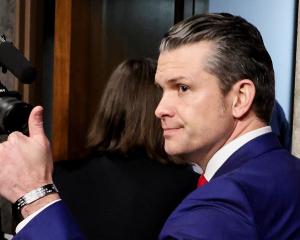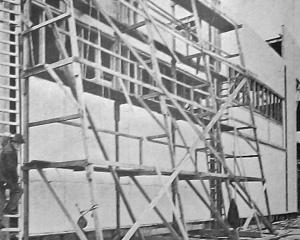Minister of Energy and Resources Gerry Brownlee has described reaction to a Government paper proposing a "mineral stocktake" of protected conservation land as "hysterical".
To an extent he is correct, although the equivocal responses he and Conservation Minister Tim Groser have thus far given to questions on precisely what, in the conservation estate, would be unequivocally off limits do little to lessen the "hysteria".
It could be argued the act of assessing the petroleum potential of the Waitutu forest in the Fiordland National Park, while at the same time reviewing schedule four of the Crown Minerals Act - which bans mining access to New Zealand's highest conservation areas - is not unakin to finding a bunch of needy citizens with of a precise map of the gold bullion vaults in Fort Knox, along with the security codes to gain entry.
They may not ever use them but some people may be concerned that one day, and under certain circumstances, the temptation might just prove too great.
The paper at the centre of the commotion has been produced by the Ministry of Economic Development and the Department of Conservation and was obtained by the Green Party under the Official Information Act, a process which in itself presupposes an unfortunate degree of secrecy and encourages adversarial positions.
It proposed a review, now in progress, of protected Doc areas with "significant mineral potential".
Those listed include: the Coromandel Peninsula (precious metals), Kahurangi National Park (precious and base metals), eastern Paparoa (coal) and Waitutu (petroleum).
Very little in the paper, dated July 22, should come as a surprise, for it foreshadowed Mr Brownlee's opening address to the Australasian Institute of Mining and Metallurgy in Queenstown on August 26.
His speech openly highlighted the Government's stance - which might help explain the heated accusation by Green Party co-leader Metiria Turei that the possibility of oil exploration in Fiordland is a "national disgrace".
In Queenstown, the minister linked the Government's determination to raise the country's living standards with the part natural resources could play in achieving that.
He cited a report indicating "our metallic mineral potential to have gross in-ground value in excess of $140 billion, with lignite alone at least an additional $100 billion".
He said that his Government was going to be "far more pragmatic and supportive" than the last towards "exploration and mining activity", and that he, as Minister for Energy and Resources, was "committed to unlocking New Zealand's mineral potential for the benefit of New Zealanders", and further that "reasonable access to the mineral estate in Crown-owned land, particularly conservation land, is a key issue".
Given such utterances and the unearthing of the "secret" paper it does not take an especially radical "Green" to join the dots and see red.
There is nothing wrong in itself with an assay of the country's mineral and natural resources.
In fact, it might be said that it is the height of irresponsible government to remain ignorant of them.
And all development and much agriculture is, in the end, a compromise between creating wealth and minimising environmental effects: the economic history of this country with its wealth built on primary production illustrates that precisely.
But this does not mean the issue should proceed without rigorous and candid debate - whether on balancing the benefits of unconstrained dairy conversions with the detrimental effects on river water quality in Southland; the value of mining lignite in South Otago to manufacture urea with the costs of the associated carbon emissions; or indeed the exploration of a World Heritage Site, Fiordland, for petroleum against the economic and cultural benefits this pristine place of great beauty lends the country.
It has been estimated, for example, that Fiordland National Park contributes more than $220 million annually to the economy.
The outcry over what at this stage is simply an attempt to initiate a discussion on whether some low-grade "conservation land", were it found to be the source of great potential wealth, could be freed up, is over the top.
But given the explicit moves the Government has made to date - including with its Emissions Trading Scheme, its initiatives to loosen up the Resource Management Act, and the establishment of the dubiously named Environmental Protection Authority (allowing the Government to take a more active role in managing the country's natural resources) - it cannot be surprised. Nor should Mr Brownlee feign umbrage at the entirely predictable reaction, however improbable exploration in Fiordland might be.
As Southland Mayor Frana Cardno put it when asked if drilling should be allowed in Fiordland: "No. Definitely not."













